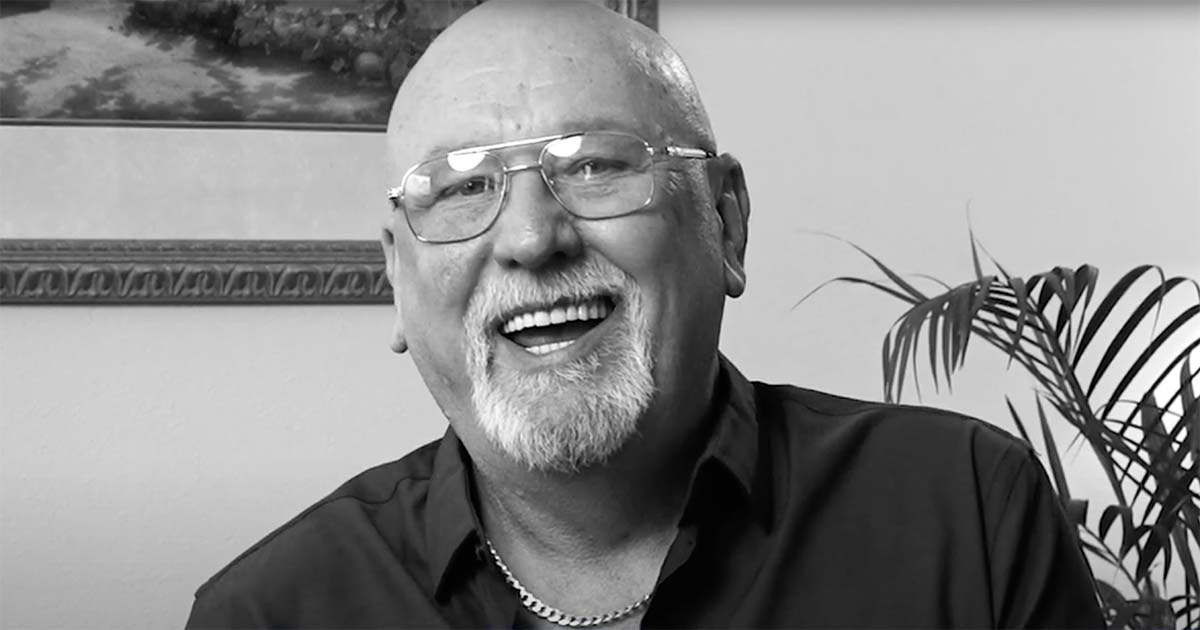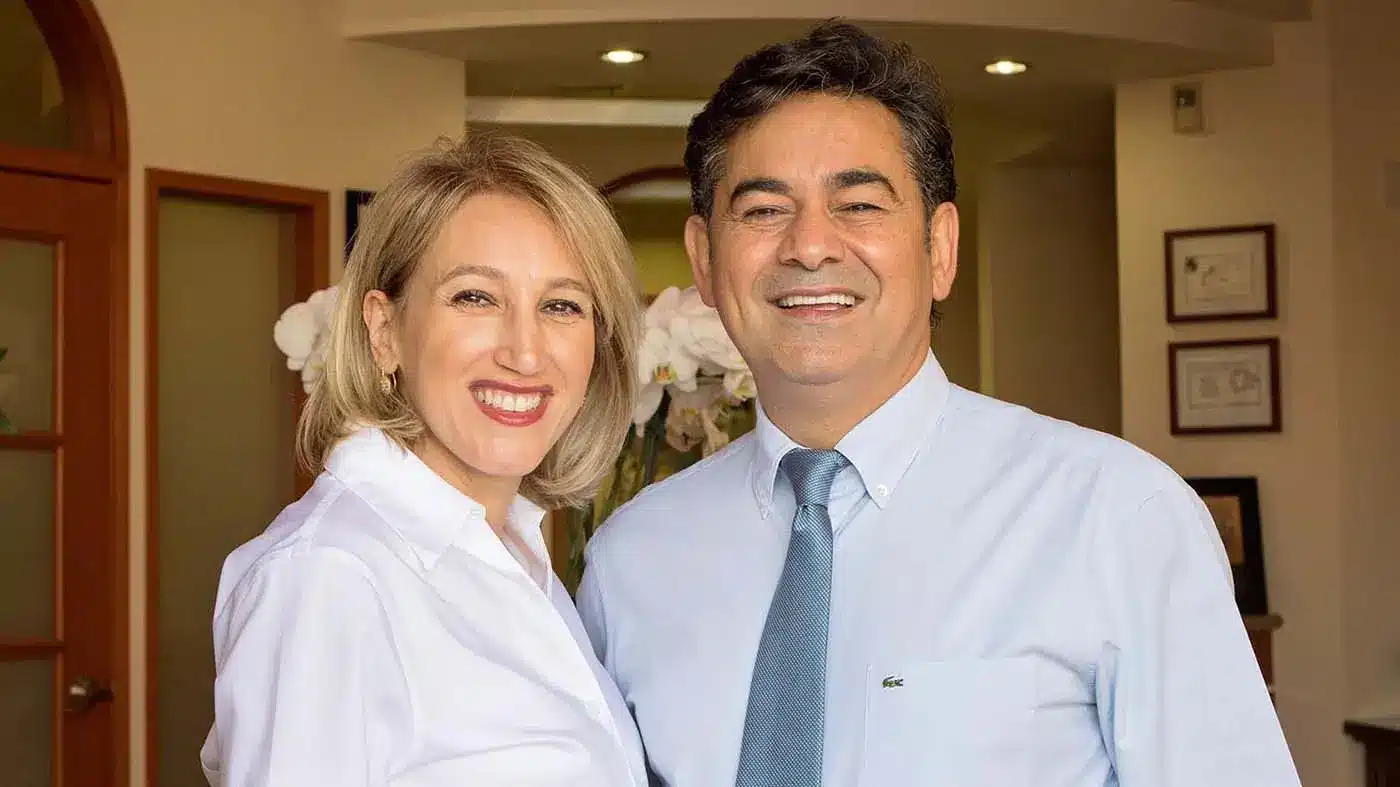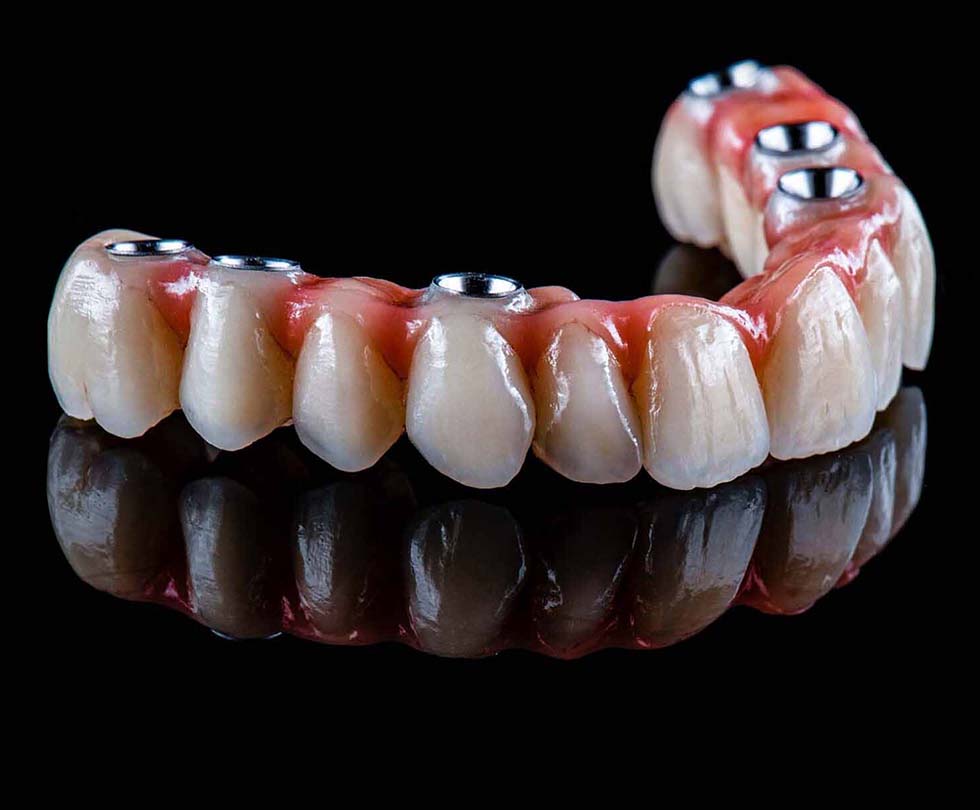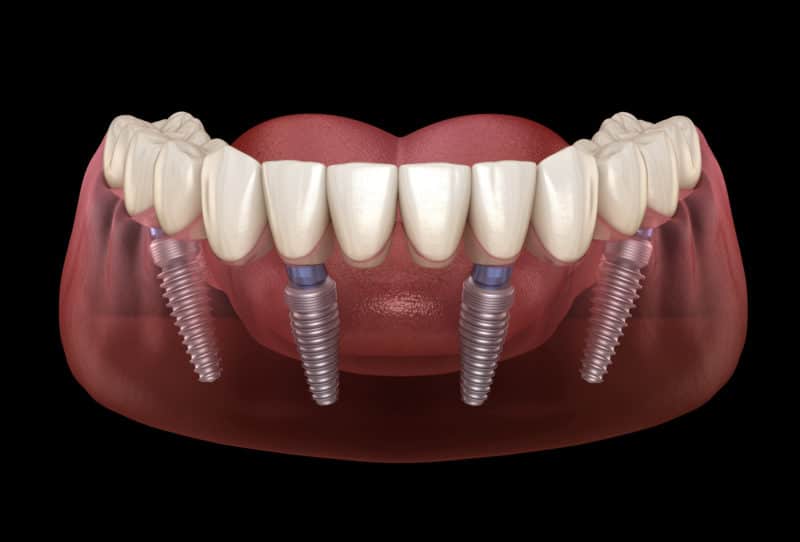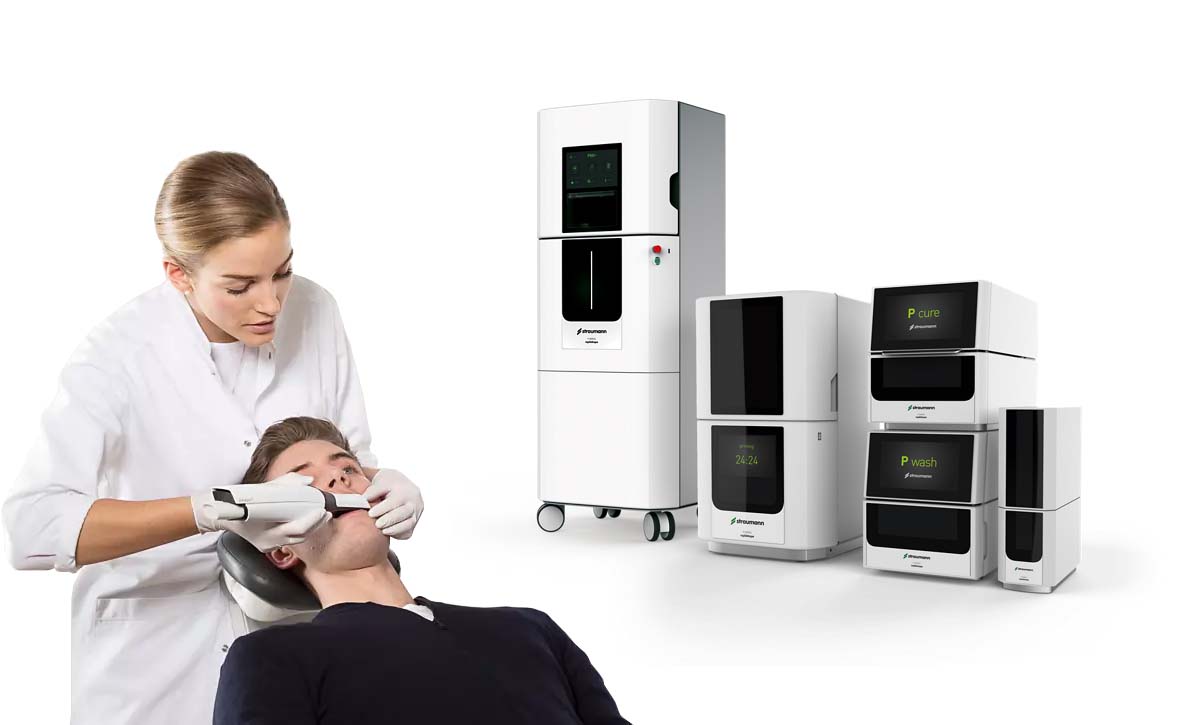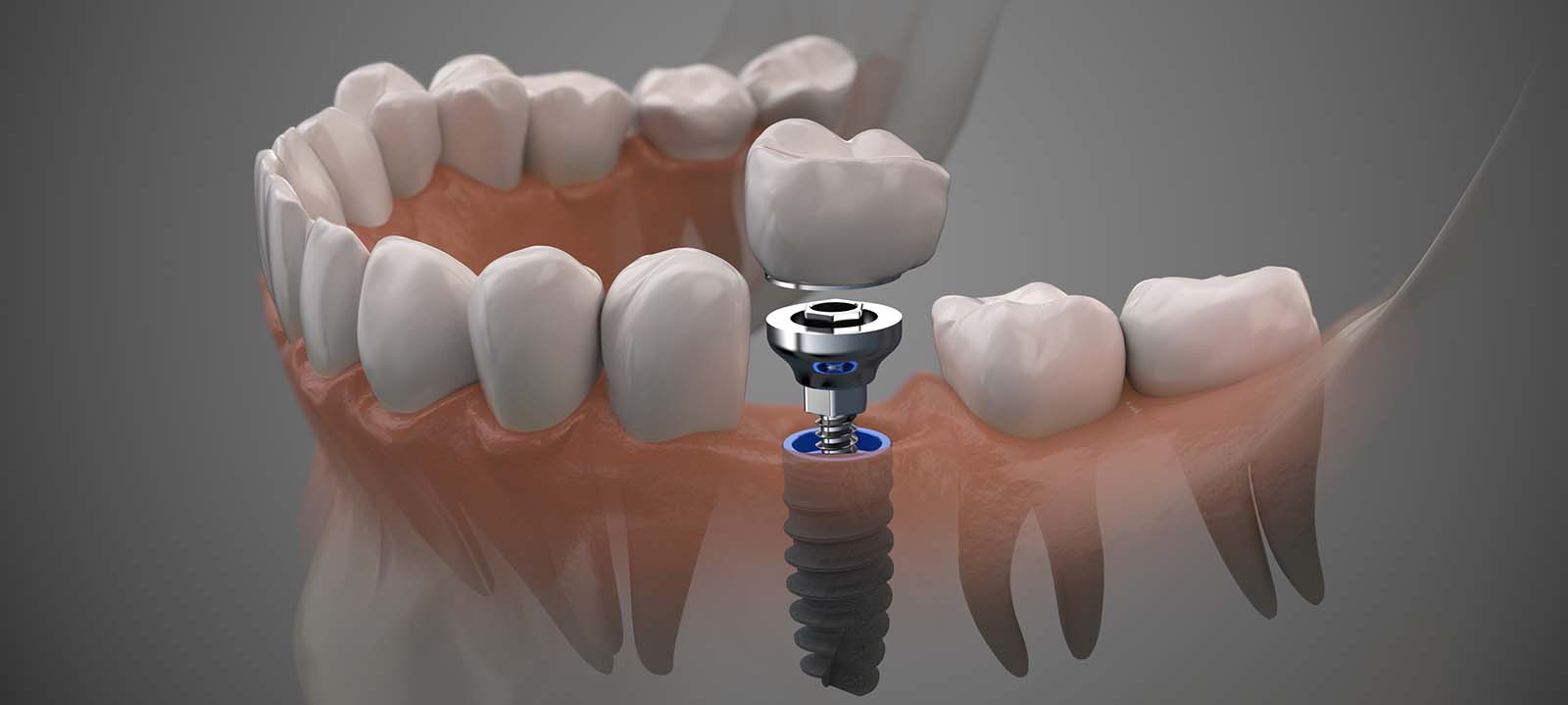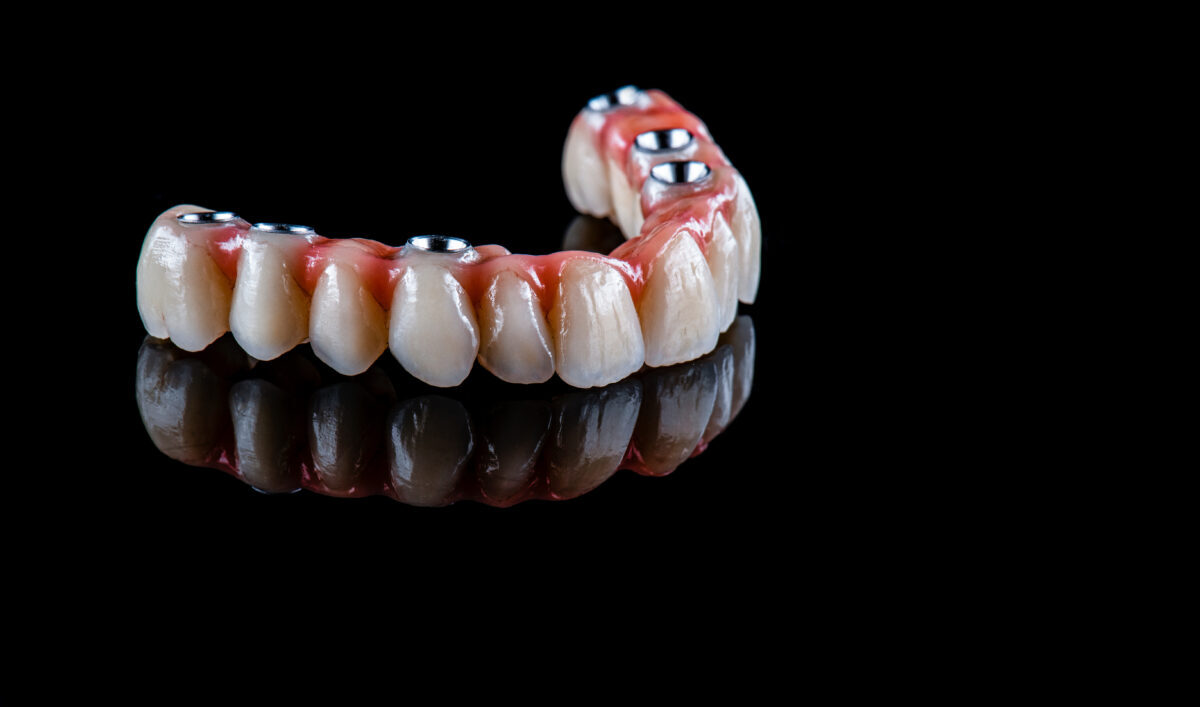Dental Implant After Surgery Care
Before your scheduled dental implant surgery, Dr. Delaram Hanookai DDS will discuss your after surgery care instructions. You’ll know what supplies to have ready for proper short and long term maintenance of your implants. And, your dentist will tell you what dietary changes are needed to help the healing process. When you have made the decision to get the best Los Angeles Dental Implants available, you can avoid or prevent after surgery complications when practicing the following care instructions.
Dental Implant Care On Day of Surgery
Because each patient is different, you may be given anesthesia before your partial or full mouth dental implants are put in. If you do have anesthesia, Southland Dental Care requires that you stay in the office until it wears off. We recommend that you have someone with you who can drive you home.
The gauze pack that Dr. Delaram Hanookai DDS puts in your mouth at the end of the surgery needs to remain in place for 1 hour. You hold the gauze firmly in place by using gentle pressure on your new dental implants. You can change the gauze after 30 minutes if you experience bleeding that will not stop. After the first hour, the wet gauze can be exchanged for a dry one at 30 to 45-minute intervals for the rest of the day.
Typical First Day Signs of Healing
- Small amounts of continued bleeding at the gum lines
- Face swelling at the jawline
- Pain at the surgery sites
- Dry lips or throat
- Stiff or tight jaw muscles
- Oozing saliva from holding your teeth together
Tips for Recovery during the First 24 Hours
- Get lots of rest
- Do not inspect or disturb the surgery sites
- Apply ice on the outside of your face at the surgery sites using either an ice pack or ice wrapped in a towel for 20 minutes on and 20 minutes off
- Gently brush your teeth before going to bed using a toothbrush with soft bristles
- Take recommended pain medication as needed and approved by Southland Dental Care
- If approved by your dentist, resume normal prescriptions taken for personal health issues
- Drink lots of cool liquids such as water, milk, and non-acidic juice from a glass without a straw
- Try not to sneeze or only sneeze with your mouth open
- No smoking of any tobacco product
Dental Implant Care on Days 2 to 4 After Surgery
- Follow the recovery tips listed above
- Gently rinse with warm salt water every couple of hours, but no vigorous rinsing
- Run your toothbrush with warm water to soften the bristles and continue gently tooth brushing
- Do not drink any alcohol, coffee, caffeinated drinks, or carbonated beverages sodas or citrus juices
- Alter your diet to include soft, nutritional foods such as apple sauce, scrambled eggs, cooked cereals, yogurt, broth or clear soups, mashed potatoes, broiled fish, ground beef, soft bread, ice cream, Jell-O
- No heavy lifting or strenuous physical activities
- Treat pain with warm compresses for 5 minutes at a time
- Try not to sneeze or only sneeze with your mouth open
- No smoking of any tobacco product
Dental Implant Care for Weeks 1 to 4 After Surgery
Continue to clean and care for your partial or full mouth dental implants as instructed by your dentist for the first few weeks after surgery. After a few days of frequent rinsing with warm salt water, you can now rinse 3 to 4 times daily. Our recommended daily oral hygiene routine is mentioned below. Schedule and keep your post-operative appointments to ensure you are healing successfully and that you are brushing and cleaning your implants properly.
Brushing and Cleaning Dental Implants
The importance of maintaining a good oral hygiene program cannot be overstated. This is true for both your natural teeth and your dental implants. But, you need to devote extra attention when cleaning around implants. This is because bacteria and small particles from food tend to get stuck in the spaces around the implants and along the gum lines. The result of not removing these particles is the formation of plaque. Infections and gingivitis can develop when the plaque is not removed daily at home or during professional dental cleanings.
Home Dental Implant Cleaning
What kind of cleaning supplies should I use for dental implants? That is the one question we hear the most from our dental implant patients. Here is a list of our recommended dental implant cleaning tools for home oral hygiene.
Toothbrushes
The type of toothbrush used for dental implant cleaning is a personal choice. There is no major advantage to using a manual, electric, or sonic toothbrush. Regardless of your selection, all of these styles will provide a thorough cleaning experience. You want to select a brush with soft bristles that is easy to handle and feels comfortable on your implants and gums.
Manual Flossing
There are many different types of dental floss and tapes on the market today. Southland Dental Care recommends using unwaxed floss or tape with a floss threader for cleaning implants. Unwaxed thread helps to protect the tissue surrounding your implants.
Water Flossing
Water flossers, also known as oral irrigators, with nonmetal tips are helpful in removing plaque and reducing the risk of inflammation. Some water flossers come with several different attachments designed to target and clean the gum lines, to work in and around dental work, and to clean around and between natural teeth. Most water flossers have adjustable water pressure levels. We recommend that you use the lowest water pressure level for dental work and sensitive gums. Water floss twice daily. Finish your flossing session with a non-alcoholic antimicrobial rinse.
Gum Stimulators
Using a rubber-tipped gum stimulator will help to encourage healthy gum tissue. Good gum tissue means having a favorable support base for maintaining dental implants. Use gentle stroke to prevent irritating the gums.
Professional Dental Implant Hygiene
You have chosen the area’s most dedicated dental office for your Los Angeles Dental Implants. Our highly educated and professional dental hygienists are also dedicated to giving you top-quality dental implant cleaning. In addition to your regular dental cleaning, you will have a deep cleaning procedure that goes below the gum lines to remove dental plaque and bacteria that have built up below the gum’s surface and on the tissue surrounding your dental implants and natural teeth. The dentist will evaluate your oral health and monitor the condition of your dental implants during your dental hygiene appointments.
You will be visiting the dental office several times during the healing period following your surgery. Every patient has a different rate of healing. That means that individual healing time may take anywhere from 3 to 9 months. After the bone has regrown around the implants, your implants can be cared for like natural teeth. The American Dental Association recommends professional dental cleaning twice a year. However, depending on your individual dental situation, your dentist may recommend that you have a dental implant cleaning 3 or 4 times a year.
Advantages of Having Dental Implants
When you make the decision to have dental implants, you are making an investment that will last a lifetime. Implants let you regain full dental functions while stopping bone loss. Most patients are surprised to learn that their jawbone starts to deteriorate when teeth are lost. This means that they will develop a sunken facial appearance that makes them look older than they actually are. But, with dental implants you’ll be able to regain a more youthful and glowing appearance. With dental implants, you’ll restore your personal confidence for speaking and smiling in public and you’ll eliminate eating difficulties. Having dental implants is an investment that you make in your overall health.
Cost of Dental Implant Surgery
The cost of full mouth dental implants will vary from one patient to another. This is due to a number of factors that include surgical requirements, design options, dental restoration materials used, the existing bone and gum conditions of the patient, and how many steps will be needed for the complete treatment.
The most accurate way for you to learn the cost of full mouth dental implants is to make an appointment with Dr. Delaram Hanookai DDS for a dental consultation and analysis. Dr. Hanookai will evaluate your individual oral situation and explain what treatment plan will be effective for you. During your discussion, you will be told the following details.
- How to prepare for the surgery
- What supplies you’ll need for home care after surgery
- What foods you can or cannot eat while healing
- How the surgery will be done
- How long the surgery will take
- What post-surgery symptoms you may experience
- What medicine to take for pain
- How to care for yourself after the surgery
- How many follow up office appointments will be needed
- How long your personal healing period will be
- When you will be able to resume normal activities
- When to schedule your professional dental hygiene cleanings
- What the total cost of your treatment will be
- What type of payment plans are available
- How much dental insurance will pay for the treatment if you have insurance





